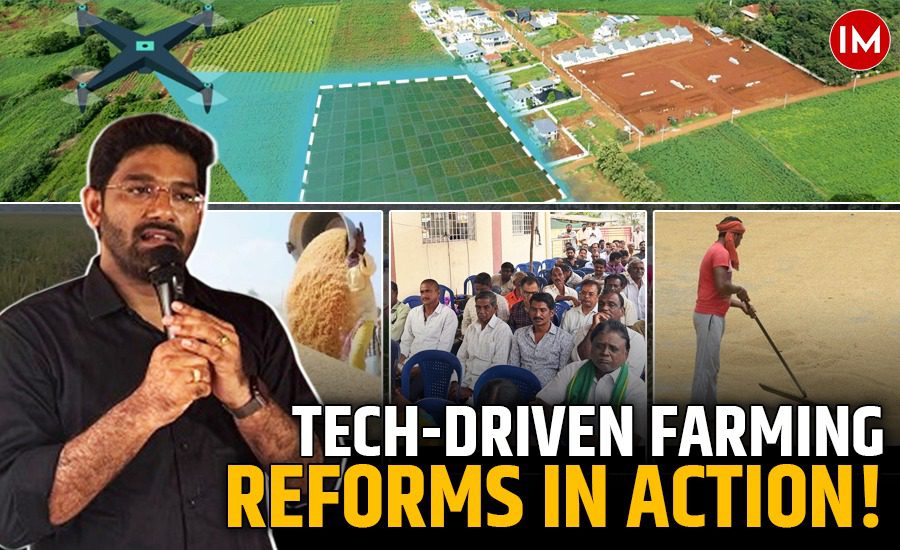Every year during the paddy harvest season, farmers across India struggle to sell their crops at fair prices. Despite assurances of Minimum Support Prices (MSPs) from the government, they often face hurdles at procurement centers – from issues with moisture content to transportation delays – resulting in financial losses.
However, in Andhra Pradesh’s West Godavari district, a new model is being set for paddy procurement. In a powerful demonstration of people-centric governance, the district administration, under the leadership of Joint Collector T. Rahul Kumar Reddy, a 2020-batch IAS officer, is streamlining the procurement process to truly benefit the farmers.
In addition to this, the administration is also spearheading a major reform through the Comprehensive Land Resurvey Project – a technology-driven initiative to modernize and update land ownership records, thereby reducing disputes and ensuring rightful ownership.
Indian Masterminds recently interacted with Mr. Rahul to learn more about the initiative and how the administration is making a real difference in the lives of farmers.
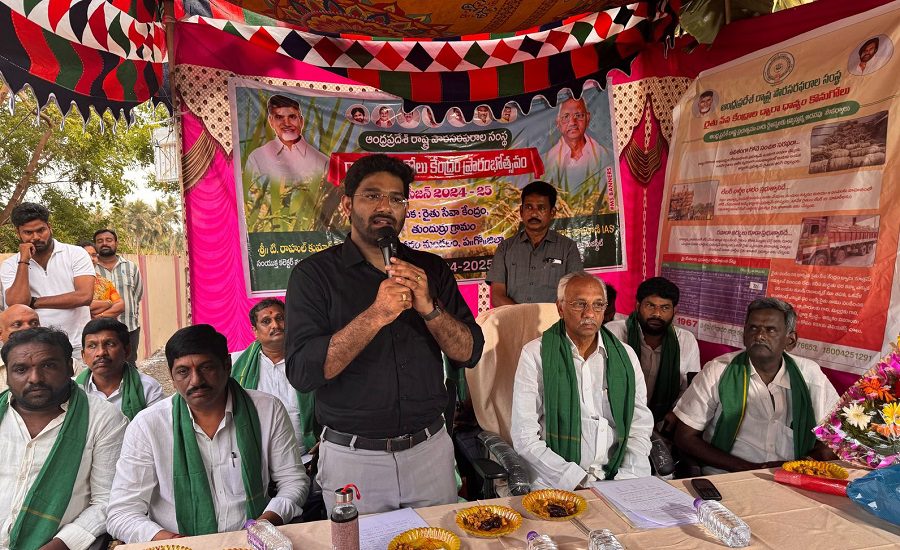
THE PADDY PROCUREMENT
Recently, Mr Rahul inaugurated An another Paddy Procurement Center in Tundurru village, located in the fertile delta region of Bhimavaram Mandal. Known for its rich paddy cultivation, this region is now at the heart of a transformative state initiative aimed at uplifting farmers, promoting transparency, and ensuring fair pricing.
This move aligns with the State Government’s policy to procure paddy directly from farmers during harvest season – guaranteeing them the MSP declared by the Central Government. The district has witnessed a bumper production of around 9 lakh metric tonnes of paddy this year, out of which the administration is procuring 6 lakh metric tonnes through a coordinated effort involving six key departments: Cooperation, Civil Supplies, Revenue, Agriculture Marketing, Transport, and Rural Development.
A standout feature of the initiative is the decentralization of procurement. Out of the 420 villages in the district, 265 are active in paddy farming. In each of these villages, dedicated procurement centers have been established, bringing the market to the farmer’s doorstep. This localized approach ensures ease of access, transparency, and timely payments – all within 48 hours of procurement.
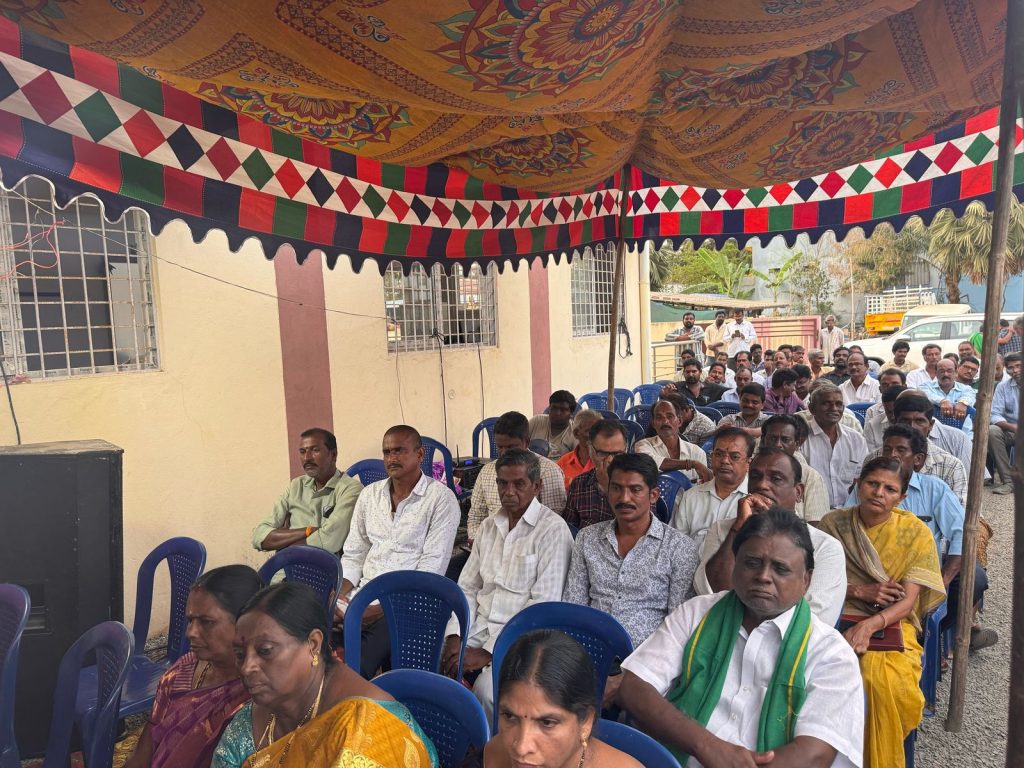
THE FAIR PRICING ISSUE
However, a longstanding issue for paddy farmers has been unfair deductions based on moisture content. Often, procurement centers reject produce for not meeting moisture standards, forcing farmers to sell at lower prices in the open market. This year, the administration is tackling this challenge head-on with two major interventions-
Bluetooth-Enabled Moisture Meters: Each procurement center now uses digital moisture meters connected via Bluetooth. A 20-gram sample is tested, and the moisture reading is automatically sent as an SMS to the farmer and simultaneously to the rice mill. This ensures that the reading is tamper-proof and transparent. The mill is bound to accept the recorded value, preventing any unfair deductions.
Proactive Farmer Support Through Rythu Seva Kendras (RSKs): The administration has created widespread awareness about proper drying practices and the importance of achieving the government-specified 17% moisture level. Officials coordinate with farmers before harvest, advising them to dry the crop for 2–3 days post-harvest. On the final day of drying, when moisture is optimal, government-supplied gunny bags are provided, and procurement is initiated.
A WhatsApp-based registration system has also been introduced, allowing farmers to notify officials of their harvest schedule. The cooperative department then arranges field-level testing and initiates procurement directly – even from the farm itself if conditions are met.
“So, apart from the center, we are also procuring directly from the field. After harvest, a cooperative representative visits the farmers, advises them to dry the paddy, and once the moisture level is satisfactory, the paddy is procured,” Mr Rahul said.
This people-first initiative not only ensures that every grain counts but also safeguards farmers’ incomes through technology, real-time communication, and multi-department collaboration. Andhra Pradesh is setting a new benchmark in agricultural governance – putting farmers first, every step of the way.
REVOLUTIONIZING LAND RECORDS
In another significant initiative, the administration is undertaking the Comprehensive Land Resurvey Project – a tech-driven overhaul of land ownership records. As part of this groundbreaking effort, Mr. Rahul is visiting villages to directly engage with farmers, addressing their concerns and ensuring the successful implementation of the resurvey initiative.
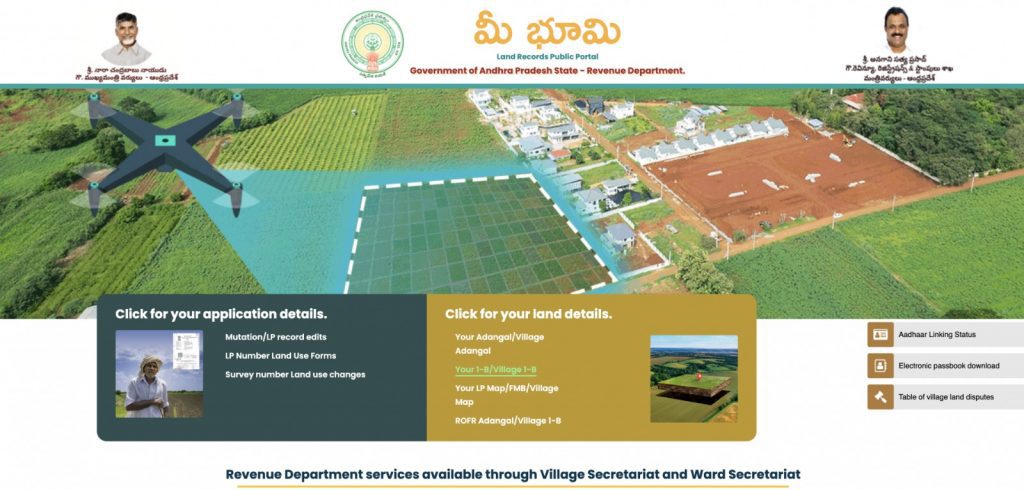
Andhra Pradesh’s resurvey drive marks the first time in over a century that such a detailed and technology-driven land survey is being undertaken. The last major land survey was conducted by the British in 1920. Now, the state government is leveraging cutting-edge technologies like drones, rovers, and satellite-linked systems to create a modern, tamper-proof land record system.
HOW IT WORKS
Drones are deployed to capture high-resolution aerial images of agricultural land. Farmers are notified in advance about the resurvey schedule and are invited to demarcate their land boundaries on-site. These boundaries are then verified using high-precision rover instruments connected to a Continuously Operating Reference System (CORS) network – comprising 70 stations across the state – linked to satellite data for pinpoint accuracy.
The data collected is used to generate a Land Parcel Map (LPM) for every farmer. Each LPM includes a unique number, the total extent of land, and the corresponding survey number.
MULTI-LEVEL GRIEVANCE REDRESSAL
Farmers can review this digital record and raise objections if discrepancies are found. A multi-tiered grievance redressal mechanism ensures every voice is heard – first at the village level, then at the mandal level if needed.
Mr Rahul said, “So far, 190 villages have been successfully resurveyed, and the administration aims to cover all 310 revenue villages in the district by the end of the year.” This initiative not only empowers farmers with clear, dispute-free land titles but also paves the way for future-ready governance in rural land management.
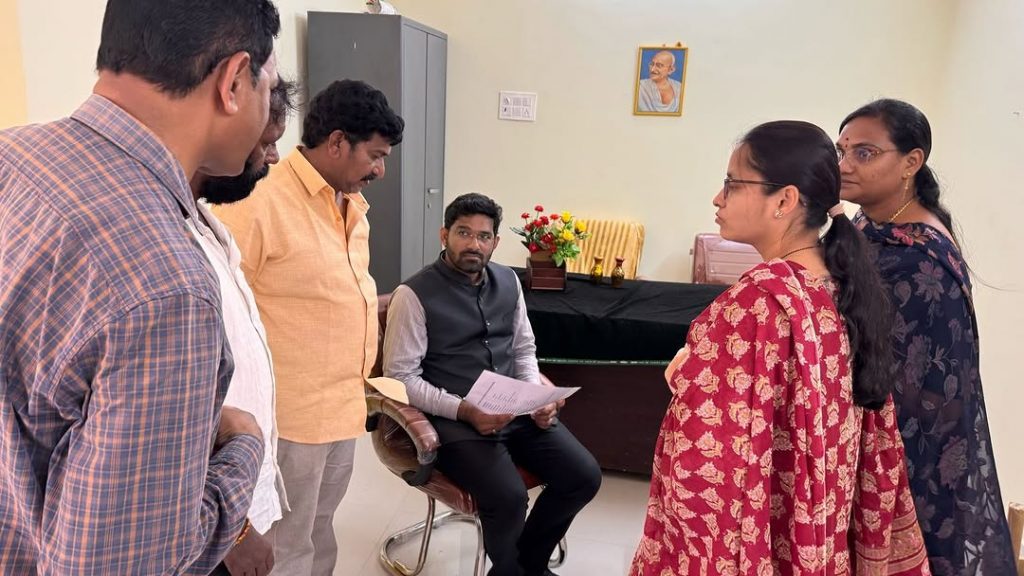
THE ROAD AHEAD: TECHNOLOGY, TRUST & FARMER-CENTRIC GOVERNANCE
With digital procurement systems, transparent payment processes, and modern land records, Andhra Pradesh is rewriting the script on rural development. These farmer-first initiatives, championed by officials like Joint Collector T. Rahul Kumar Reddy, reflect a governance model where technology meets empathy.
In a state that grows much of India’s grain, every grain – and every farmer – now counts.

